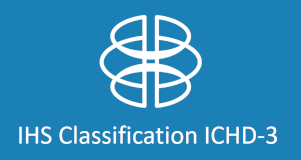Description:
Headache, often bilateral and pulsating, caused by arterial hypertension, usually during an acute rise in systolic (to ≥180 mm Hg) and/or diastolic (to ≥120 mm Hg) blood pressure. It remits after normalization of blood pressure.
Diagnostic criteria:
- Any headache fulfilling criterion C
- Hypertension, with systolic pressure ≥180 mm Hg and/or diastolic pressure ≥120 mm Hg, has been demonstrated
- Evidence of causation demonstrated by either or both of the following:
- headache has developed in temporal relation to the onset of hypertension
- either or both of the following:
- a) headache has significantly worsened in parallel with worsening hypertension
- b) headache has significantly improved in parallel with improvement in hypertension
- Not better accounted for by another ICHD-3 diagnosis.
Comments:
Mild (140-159/90-99 mm Hg) or moderate (160-179/100-109 mm Hg) chronic arterial hypertension do not appear to cause headache. Whether moderate hypertension predisposes to headache remains controversial, but there is some evidence that it does.
Ambulatory blood pressure monitoring in patients with mild and moderate hypertension has shown no convincing relationship between blood pressure fluctuations over a 24-hour period and presence or absence of headache.
